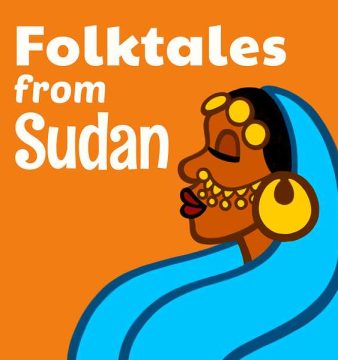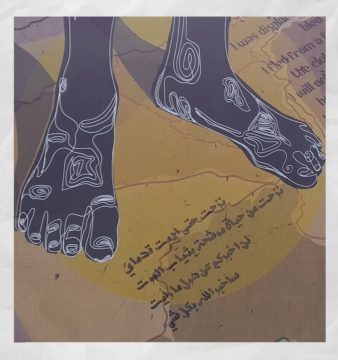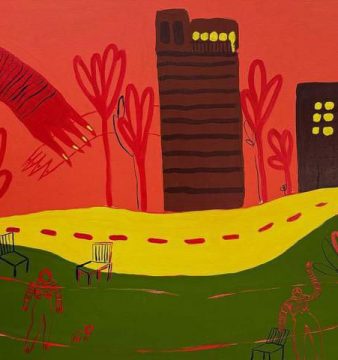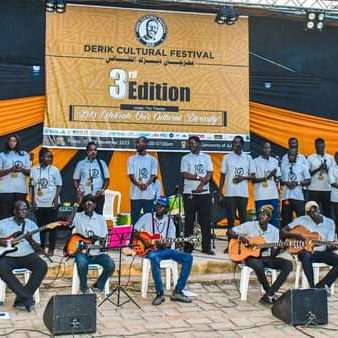Mohamed Al Hallaag: Idaho’s Top Sudanese Barber
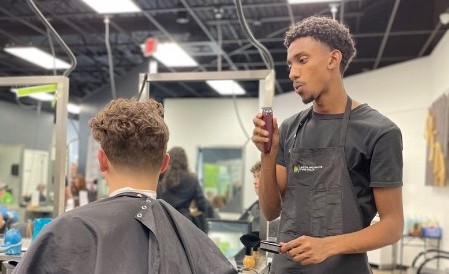
How do you make a place like Twin Falls, Idaho home?
It was December. Sudanese wedding season, as anyone could tell you, and the Sudanese people of Idaho were hype. Life in Idaho, like life in Sudan, can be pretty dry, and a good old-fashioned ‘iris is the best way to break up the monotony. For the Sudanese of Twin Falls – one of Idaho’s Sudanese hotspots – that can only mean one thing.
Paying a visit to Twin Falls’s top Sudanese-American barber, 21-year-old Mohamed Khogali.
‘My favourite thing is walking into a munaasaba [special occasion or event], looking around at everyone, and seeing my work. Always puts a smile on my face,’ said Mohamed.
Best known in Twin as Mohamed al hallaag (the barber) or Mohamed Tito, Mohamed Khojali is a special man. In many ways, he is very much like any other Sudanese-American. At just eight months, his parents left Sudan to live the life of an expatriate in Cairo, Egypt where he stayed until he was 12.
‘I never knew I was coming to America. I couldn’t fathom it. It was a big shock when my family told me. I was upset. Egypt was my happy place, you know?’ Mohamed said.
Like other Sudanese-Americans, his parents came here with big dreams for their kids: a college education and a career in medicine or STEM (engineering, specifically). Mohamed was a perfect candidate for this Sudanese-American dream. He was driven, studious and a great athlete. In Egypt, his friends nicknamed him Tito after a famous soccer player. In Twin, while attending Canyon Ridge High School, he made a name for himself in track. By the time he graduated, he had 60 different letters from colleges around the US inviting him to pay them a visit. It was perfect.
However, for me and other young Sudanese boys in Twin, Tito wasn’t known for being the aspiring engineer or the star athlete. He was known as al hallaag, the barber. In a town of 35,000 people where just 1% of the people are Black, going to a white barber and having them screw up your hair was a pretty regular occurrence. It’s why I personally avoid barbershops, especially after I started growing my Afro. Tito’s brothers suffered the same experience. Eventually, his older brother Abd Al Gaadir, after another subpar Twin Falls haircut, asked him the question that would change his life forever, ‘do you think you could fix my hair?’
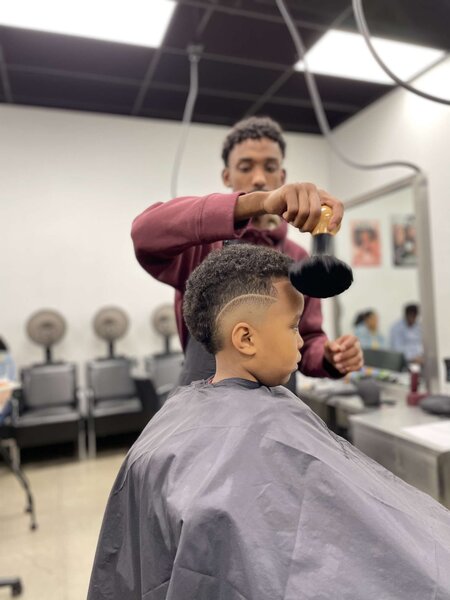
One trip to a Walmart Supercenter later, and 14 year-old Tito had his first clipper and a brand new hobby. Both his brothers, his first regulars, started to repeatedly ask him to fix their hair even after they got it cut at the barbershop. To sharpen his technique, he went to the next best thing for an aspiring hairdresser after cosmetology school – YouTube.
‘I would watch 15-20 360Jeezy videos every day…for a year,’ Mohamed said.
It would show, too. People started asking Abd Al Gadir, ‘who did your hair?’
‘I was really lucky I went to Canyon Ridge for high school. It’s very diverse. Sudanese, Mexicans and just about any country you can think of,’ Mohamed said.
Twin Falls is very segregated. I can remember when Canyon Ridge was built. The high school I went to, Twin Falls High, moved its English Language Acquisition programme over there, making it the hub for Twin’s new Sudanese migrants.
‘My friends from the Sudanese and African communities started to ask me if I could cut their hair. Then they told their friends…I got to the point where I was doing five to six haircuts a week. I thought it was a big thing back then. It’s nothing now,’ he said.
Eventually, he got the nickname we now know him by Mohamed al hallaag. He started charging USD10 for haircuts at a little booth he set up in his garage. That was where I first saw Mohamed at work.
‘Those days feel so long ago. When I look back, I feel really grateful. I learned a lot,’ he said.
My mom told me to take my younger brother to get his hair in twists for his birthday. I remember we were talking in the car. I couldn’t believe my ears.
‘Tito does your hair?’
‘Yeah!’
‘And he’s good?’
‘He’s the only guy who can do Black hairstyles in Twin, honestly.’
I was in awe watching Mohamed work — I’d heard him mention his interest in haircutting before and saw his brother with a new style every week. Tito went from taking requests to fix his brothers’ hair to asking him to let him practice on them. But now he had himself a little practice, even if it was just in his garage: but while I sat there, sipping tea and indulging in our usual wanasa, I saw something I didn’t expect: a line. More and more Sudanese came in, entering through the side door: more clients.
In December 2022, on a visit to my family in Twin, before a Sudanese wedding scheduled in Boise, I broke my personal rule of never walking into a barbershop. My brother convinced me to let Mohamed handle my Afro. I was just excited to see how much he’d grown. I walked into Throne Barbershop — I never even knew it existed. I walked in, beaming.
‘Weyn ya Tito?’ (What’s up, Tito?)
‘Oooooh, Ustaaz Hatim. Mushtaageen!’ (Oh, Mister Hatim! I’ve missed you!)
We walked over to his booth, ‘I’m scared!’ said Mohamed, eyeing my Afro and giggling.
‘So you’re an actual barber now? Wallai mashallah.’
‘Yep! Licensed and everything.’
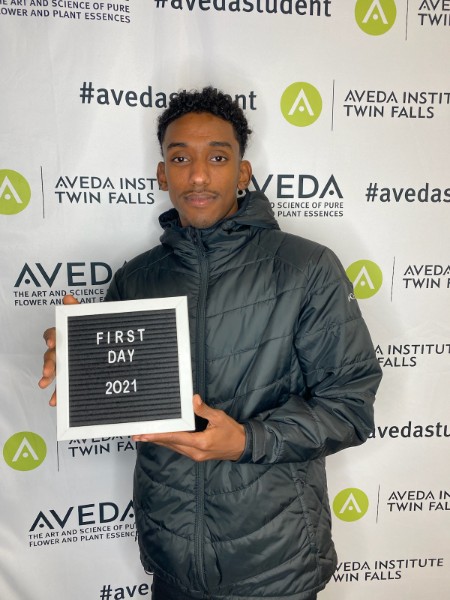
I later found out that Throne was Tito’s first shop. The owner called him right after his graduation from the Aveda Institute, where he completed the yearlong cosmetology programme in five months. He broke the school record for requests. Every month, they’d post the rankings of which students got requested the most. He was #1 every month, sometimes being requested by up to 95 different people.
‘Al-handasa khalleyta?’ (‘So, no more engineering?’)
He told me what had happened later on. He put his studies on hold after one semester.
‘I was doing good in school and with my extracurriculars, but I was unhappy. I couldn’t figure out what it was. I went to my elders in the community. They are the best people to talk to about life, in my opinion, because they’ve already been through it all. I would have tea with them and just try to find the answer to why I was unhappy,’ Mohamed explained.
‘This was the time I stopped cutting hair. Then I realised why I’d stopped cutting hair. It was a big void,’ he added.
His parents were scared he was putting his studies on hold. After all, cutting hair was a good hobby or side hustle, and he was great at it, but it wasn’t the biggest moneymaker. Eventually, though, concern gave way to encouragement. Tito was doing what he truly loved, and the entire community was thanking him for it. I mean, I was thanking him for it. It was the best haircut I’d ever got. He could tell, too.
‘That’s the most important part, wallai, seeing people get excited about their haircut, because they know they look good!’ Mohamed said.
Well, maybe second favourite. That weekend, we went up to a wedding in Boise. Tito and I had both discovered that none of us knew who the bride or groom were, but hey, Sudanese-Idahoan social obligations.
During the wedding, Mohamed leaned over and whispered, ‘My favourite thing is walking into a munaasaba, looking around at everyone, and seeing my work. 80-85% of the people here, I did their hair.’
He was right, too. Even though Boise’s a bigger city, Twin Falls’s Sudanese community is bigger – we were like 90% of the attendants. And of course we had Tito do our hair. I mean, whom else would we go to? In this little white Mormon town, Tito is our hallaag, a child of our community, Twin Falls’s first Black barber, the first name we mention to any new family asking where to get their kids’ hair done. He is our pride and joy, who set aside the typical Sudanese-American dream and made a little white Mormon town like Twin Falls feel like home.
For more on Mohamed Khojali or to allow his work, find him on Instagram @cutsbytito.
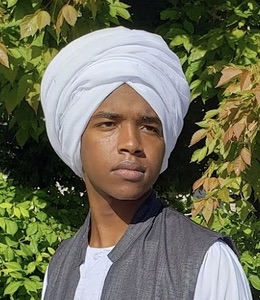
Hatim Eujayl is a Sudanese-American artist and Nubiologist specializing in linguistics. His best known projects include Geri Fai Omir on Kickstarter, The Sounds of Sudan YouTube channel, and the Sawarda Nubian font. He can be reached @massintod on Instagram or by email arbaab@hatimeujayl.com.

